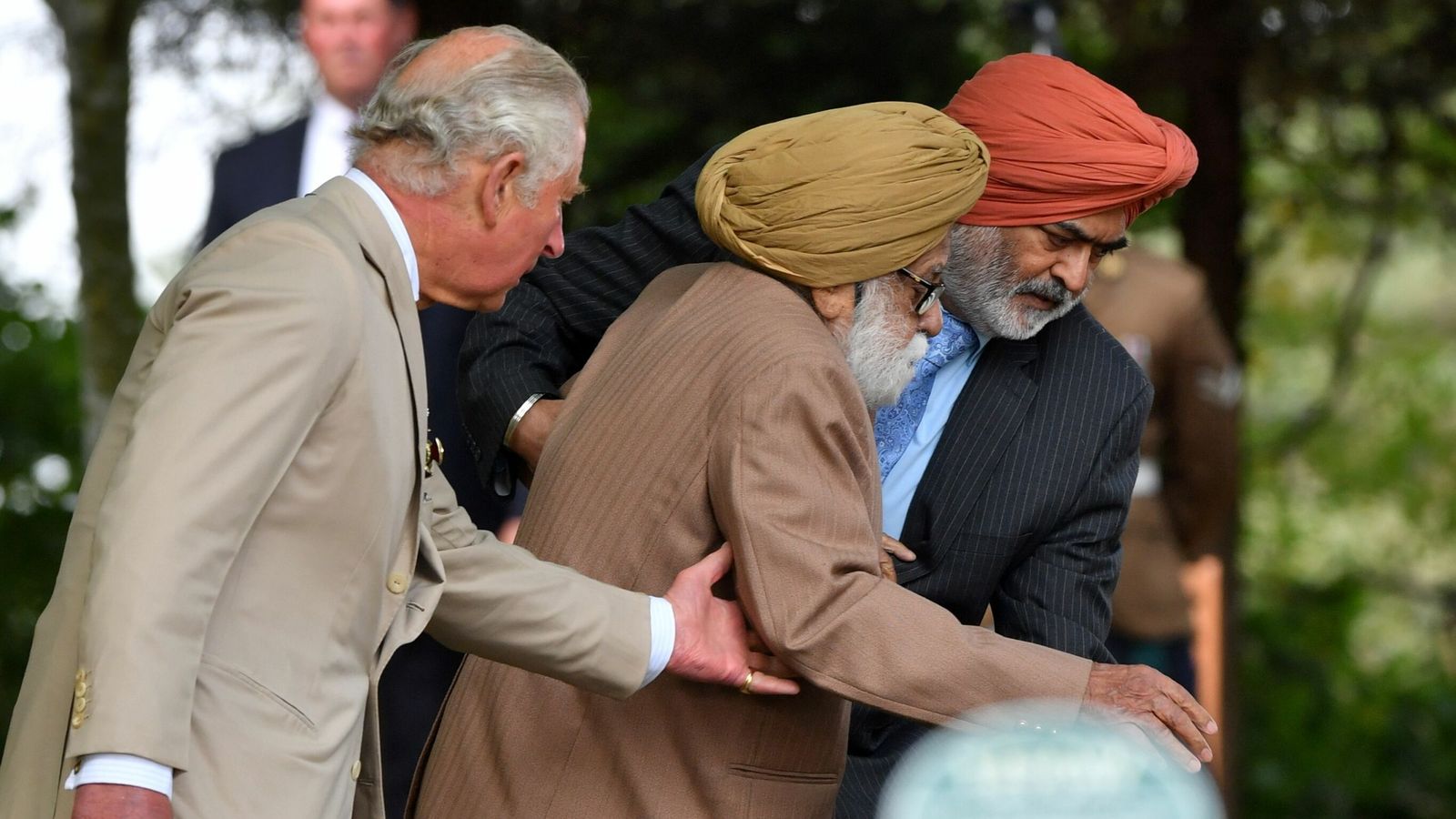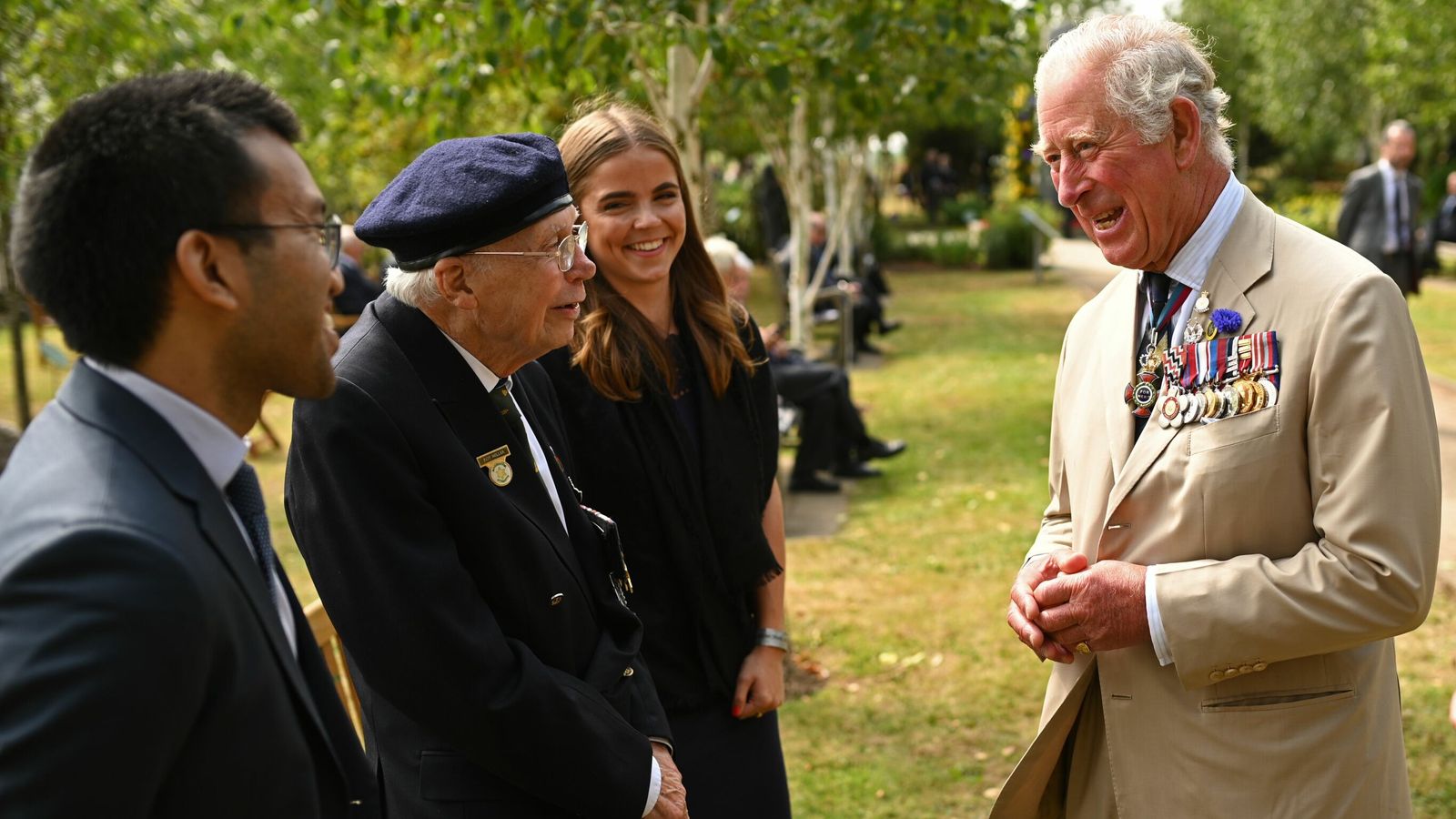Although VE Day (Victory in Europe Day) arrived just over three months earlier, it was not until 15 August 1945 that the Second World War finally came to an end with the surrender of Japan.
Charles, who laid wreaths with the Duchess of Cornwall at the National Memorial Arboretum in Staffordshire, said those who fought in the Far East had been labelled "the forgotten army".
About 40 veterans attended the anniversary VJ Day service.
Richard Day, 93, who was involved in the decisive Battle of Kohima in northeast India, said the worst part was "crossing rivers at night", then going through the small hours in wet clothes with wet equipment.
More than 71,000 British and Commonwealth troops died in the Far East campaign, including 13,000 who lost their lives in Japanese prisoner of war camps, where conditions were brutal.
In a speech, the Prince of Wales said many of the "soldiers, nurses and other personnel felt anger and disappointment at how they were treated when they finally returned home from a war which, from the public's point of view, had ended on the 8th May 1945 (VE Day)".
He added: "Let us affirm, they and serving veterans are not forgotten, rather you are respected, thanked and cherished with all our hearts and for all time."
Boris Johnson read the Exhortation before a two-minute silence, which was followed by a Battle of Britain Memorial Flight flypast, involving three Spitfires, a Hurricane and a Lancaster bomber.
In a letter to veterans, the prime minister said: "You fought for freedom, brought the Second World War to its end, and restored peace and prosperity to the world. On this anniversary, and every day hereafter, you will be remembered."
In a statement, the Queen mentioned the "joy at the end of the conflict", but also remembered the "terrible devastation that it brought"
The Prince of Wales helps 97-year-old veteran Darbara Singh Bhullar lay a wreath
https://news.sky.com/story/charles-leads-tributes-to-forgotten-army-on-75th-anniversary-of-vj-day-12049708


